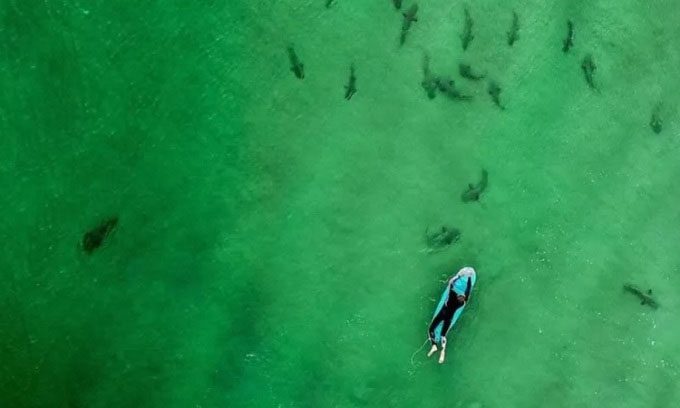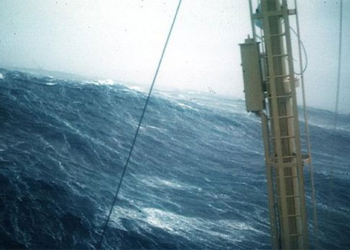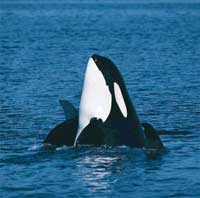Volusia County in Florida Records the Highest Number of Shark Bites in the World from 1882 to 2023.

Sharks Surrounding a Surfer at New Smyrna Beach. (Photo: Fox News)
Data from the International Shark Attack File (ISAF) at the Florida Museum, the only comprehensive database of all shark attacks in the world, shows that Florida leads the list with 259 incidents from 2012 to 2021, far surpassing Australia in second place, as reported by Business Insider on September 24. However, Volusia County, home to famous beaches like Daytona and New Smyrna, on the eastern coast of Florida, is dubbed the “Shark Bite Capital of the World.” This area poses the highest threat of shark encounters for swimmers and surfers in the state, with 343 recorded shark bites from 1882 to 2023, more than double that of the neighboring Brevard County, which ranks second, according to ISAF.
Gavin Naylor, director of the Florida Shark Research Program, stated that the reason for this is due to the offshore area of Volusia having a high density of menhaden and oil sardines, along with many high waves to surf.
“Water flowing out of Ponce Inlet, north of the area with the most shark bites, always has a high density of bait fish. This location is also a high-energy environment with significant wave activity. The swirling water reduces visibility and attracts surfers. Meanwhile, the bait fish attract sharks, but the poor visibility in the area makes catching them difficult, leading sharks to target arms or legs that extend out from the surfboard.”
ISAF data indicates that the activity, location, and time most prone to shark attacks is surfing off the coast of Volusia between 2 PM and 3 PM in September. Sharks hunt in the waters off Volusia County, with most incidents involving blacktip sharks, bull sharks, and requiem sharks.
Since the beginning of 2023, there have been 7 recorded shark bites in Volusia County. One surfer was bitten on the face in the waters off New Smyrna Beach on September 12. Mark Summersett, 38, was attacked while surfing near the breakwater at the beach, according to Ocean Rescue Captain Alex Miller.





















































